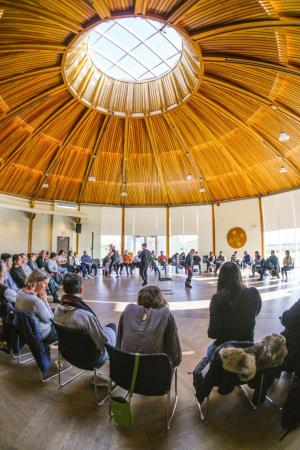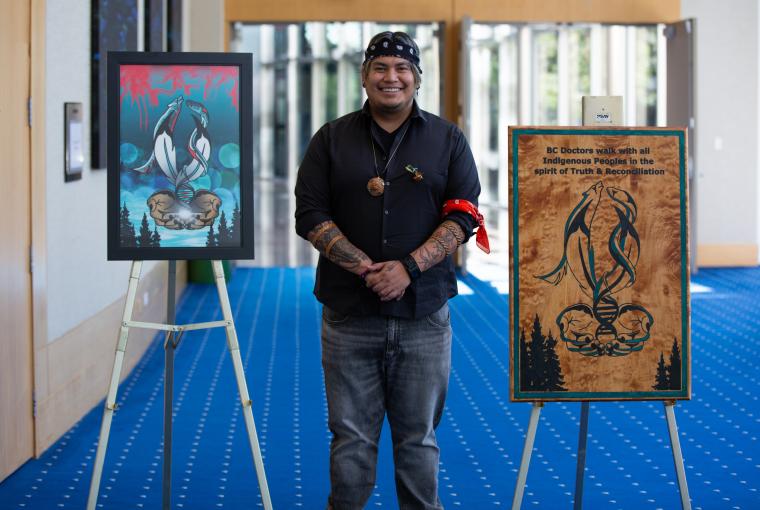- Managing your Practice
-
- Your Benefits
-

Introducing the ultimate Club MD experience
From work to play, and everything in between, we provide you with access to hundreds of deals from recognizable, best-in-class brands, elevating every facet of your life – from practice supports to entertainment, restaurants, electronics, travel, health and wellness, and more. Your Club MD membership ensures that these deals are exclusive to you, eliminating the need to search or negotiate.
Welcome to the ultimate Club MD experience. Your membership, your choices, your journey.
-
- Advocacy & Policy
-
- Collaboration
- News & Events
-

Stay Informed
Stay up to date with important information that impacts the profession and your practice. Doctors of BC provides a range of newsletters that target areas of interest to you.
Subscribe to the President's Letter
Subscribe to Newsletters
-
- About Us
-

Our commitment to a culturally safe health care system
 Doctors of BC recognizes that physicians have a significant role to play collectively and individually to help address anti-Indigenous racism in healthcare and make the system more culturally safe.
Doctors of BC recognizes that physicians have a significant role to play collectively and individually to help address anti-Indigenous racism in healthcare and make the system more culturally safe.
In 2019, we signed a Declaration of Commitment between Doctors of BC and the First Nations Health Authority, and in partnership with First Nations and Indigenous patients, in which doctors agreed to create an environment where cultural safety is developed, understood, embraced, and practiced at all levels in our health care system.
Since then, positive progress has been made, but there is still much work to be done. Doctors of BC is committed to walking with First Nations, Métis, and Inuit peoples on our collective journey to ensure Indigenous patients have access to culturally safe health care. Much of our ongoing work and programs are delivered through the Joint Collaborative Committees (JCCs), a partnership of Doctors of BC and the BC government.
Indigenous Specific Anti Racism and Cultural Safety in the PMA
The 2022 Physician Master Agreement (PMA) includes a joint declaration by the Doctors of BC and the Ministry of Health acknowledging the pervasive and ongoing harms of the colonialism faced by Indigenous people with a commitment to work together to supporting Indigenous Specific Anti Racism (ISAR) and Cultural Safety. The PMA also includes a number of more specific commitments to address the ongoing harms of colonialism and racism faced by First Nations, Métis, and Inuit patients and by health care staff. The agreement gives Doctors of BC a voice on a provincial forum intended to build a collection of anti-racism, cultural safety, and trauma-informed standards, policy, tools, and resources for health care organizations, including developing new tools and resources specific to BC. It also creates a Physician Specific Provincial Committee to consult on physician-specific issues related to Indigenous Specific Anti Racism and Cultural Safety. Furthermore, it amends the core mandate of the JCCs to include a provision that they: proactively address issues of Indigenous-specific racism in how physicians deliver care, strengthen the provision of culturally safe care, and improve the care experiences of First Nations, Métis, and Inuit peoples.
Engaging First Nations communities in our work
Since the release of the In Plain Sight report, we have been collaborating and engaging with First Nations communities on how best to incorporate recommendations from the report and advance cultural safety. This work has included:
- Enhancing physicians’ knowledge about cultural safety and humility through workshops, seminars, and events put on in partnership with Indigenous facilitators and Elders.
- Engaging First Nations communities in our work by ensuring First Nations representation on committees and project steering committees, and by fostering ongoing relationships with the First Nations Health Authority and local First Nations communities.
- Funding local Initiatives that include Indigenous Peoples such as quality improvement initiatives that engage First Nations and Indigenous Peoples in the planning and implementation of projects, as well as local Indigenous led primary health care initiatives
- Leading system change by supporting partnerships with local First Nations and Indigenous communities through Primary Care Networks (PCN), and by integrating cultural advisors, traditional wellness healers, and Elders in local PCNs.
First Nations community-based experiential learning sessions
 These sessions provide a unique relationship building opportunity for physicians and local First Nation communities, and aim to support physicians in providing culturally safe care by proactively addressing issues relating Indigenous Specific Anti Racism (ISAR) & Cultural Safety (CS) in the delivery of medical services. Participants learn about residential school trauma and the effect that colonization has had on Indigenous Peoples in an impactful and experiential way, as well as ways to provide safe and respectful care to Indigenous patients. The sessions are co-hosted by Len Pierre Consulting and local First Nation communities, and additional sessions are being added regularly. Learn more.
These sessions provide a unique relationship building opportunity for physicians and local First Nation communities, and aim to support physicians in providing culturally safe care by proactively addressing issues relating Indigenous Specific Anti Racism (ISAR) & Cultural Safety (CS) in the delivery of medical services. Participants learn about residential school trauma and the effect that colonization has had on Indigenous Peoples in an impactful and experiential way, as well as ways to provide safe and respectful care to Indigenous patients. The sessions are co-hosted by Len Pierre Consulting and local First Nation communities, and additional sessions are being added regularly. Learn more.
Indigenous Cultural Safety webinar series
This five-part webinar series on Elements of Indigenous Health and Healing was hosted by Indigenous Culture Safety facilitator, Harley Eagle, and provided physicians with a deeper understanding of Indigenous Cultural Safety and Trauma Informed Practice in Healthcare. Panelists shared their own experiences of striving to practice in culturally safe ways, and shared opportunities to address the growing interest and urgency around Truth and Reconciliation, Trauma Informed Practice (TIP), and Indigenous Specific Racism. You can watch all five webinars, read about keynote speakers, and access webinar resources here.
Indigenous artwork signals doctors’ offices are culturally safe places
We worked with Indigenous artist sɬə́məxʷ Rain Pierre to design an art print that can be displayed in medical offices across BC to create a welcoming space for Indigenous patients, and to inspire conversations, show support, and signify the importance of culturally safe care. Displaying this artwork in your practice is one way to show you are committed to the provision of culturally safe health care for Indigenous patients. To request an art print be mailed to your practice or office by complete this form.

Land Acknowledgement
We created the Guide to Indigenous Land Acknowledgments to provide guidance on Indigenous land acknowledgements for members representing or doing work on behalf of Doctors of BC, including those serving on committees, working groups, the JCCs, the Representative Assembly, and the Board. We’re sharing the guide publicly in the hopes it will be a useful resource for members and other physician groups.




